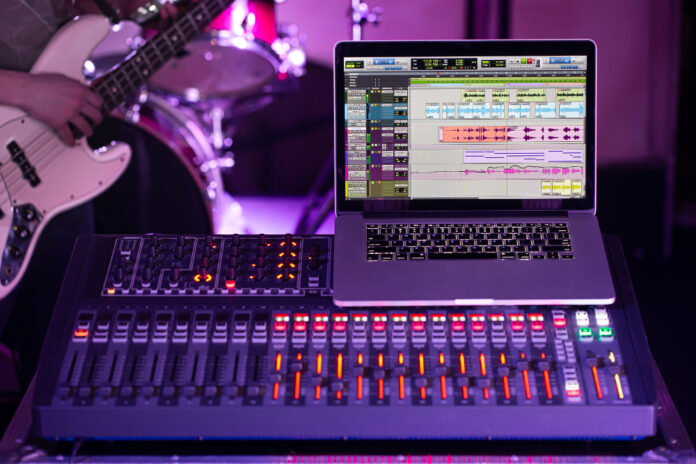Throughout history, the music industry has been at the forefront of embracing technological innovations. From the invention of the phonograph to the digital revolution, technology has continually redefined the creation, distribution, and consumption of music. Today, with rapid advancements in digital tools and platforms, the industry is undergoing a profound transformation. It is essential to understand the pivotal role of technology in shaping the future of music and its impact on the entire ecosystem.
Digital Audio Workstations (DAWs) and Production Tools
Digital Audio Workstations (DAWs) have revolutionized the landscape of music production, offering artists and producers powerful tools to craft and refine their musical creations. The seamless integration of recording, editing, and mixing functionalities within DAWs such as Ableton Live, Logic Pro, and FL Studio has democratized music production, enabling a new generation of creators to experiment with soundscapes and genres. Moreover, the accessibility of virtual instruments and plug-ins has expanded the sonic possibilities for musicians, fostering a culture of innovation and creativity within the realm of music production. As technology continues to advance, DAWs are poised to remain at the forefront of driving artistic expression and reshaping the future of music production.
Streaming Services and Music Consumption
Streaming services have fundamentally transformed how music is distributed and consumed. The landscape of music distribution has undergone a transformative shift with the widespread adoption of these services. Streaming platforms have fundamentally altered how music is consumed and accessed, thereby influencing the entire music industry. The exponential rise in music streaming subscribers, as evidenced by the nearly 616.2 million people engaging with such platforms, reflects the significant impact of streaming services on music consumption. This surge in subscribers has not only redefined the way listeners access music but has also contributed to a substantial increase in music streaming revenues, which reached $13.4 billion globally in 2020. As a result, streaming services have become a key driver in reshaping the economic dynamics of music distribution, offering artists and labels new avenues for reaching audiences and generating revenue.
However, it’s important to note that the impact of streaming services on music consumption is not without its challenges. While streaming platforms have effectively decreased piracy and increased music discovery, they have also brought about major structural changes in the industry. The significant increase in music streams, which surged by 2.5 times since 2017, has raised concerns for labels and artists regarding fair compensation and sustainable revenue models. Nonetheless, the overall benefits of streaming services are evident, as they have drawn consumers to engage with music in ways that were previously unexplored, contributing to a vibrant and dynamic ecosystem for music distribution.
Virtual Reality (VR) and Immersive Experiences
Virtual Reality (VR) technology has redefined the traditional music experience by offering immersive and interactive encounters for audiences. Through VR, artists and content creators transport viewers into virtual concert venues and interactive music environments, providing an unprecedented level of engagement and sensory stimulation. This technology has not only expanded the possibilities for live performance experiences but has also created new avenues for storytelling and audience interaction within the music industry. As VR continues to evolve, it promises to revolutionize the way people engage with music, offering a compelling fusion of technology and artistry that transcends conventional boundaries.
Blockchain and Copyright Management
Blockchain technology has emerged as a game-changer in addressing long-standing issues of transparency and fairness in the music industry. By leveraging blockchain’s decentralized ledger system, platforms are providing transparent and immutable records of music rights and royalties, ensuring that creators receive fair compensation for their work. This has far-reaching implications for empowering independent artists and reshaping the landscape of copyright management.
Live Performance Technology and Interactive Concert Experiences

The convergence of technology and live music has given rise to groundbreaking innovations in concert experiences. Augmented Reality (AR), Mixed Reality (MR), and AI-driven interactive elements are enhancing live performances, blurring the line between physical and digital realms. From real-time audience participation to interactive visual enhancements, these technologies are amplifying the emotional connection between artists and their audience, elevating the impact of live music events.
In conclusion, technological advances are reshaping the music industry at an unprecedented pace, opening up new frontiers for creativity, distribution, and audience engagement. As we navigate this era of innovation, it is imperative for industry stakeholders to embrace and harness the power of emerging technologies. By doing so, the music industry can continue to evolve, thrive, and deliver rich and immersive experiences to audiences worldwide.
As we look to the future, the potential for technology-driven innovation in music is limitless, with opportunities to redefine artistic expression, reshape business models, and elevate the overall music experience. Embracing these advancements will undoubtedly pave the way for sustainable growth and continued artistic evolution in the dynamic landscape of the music industry.





